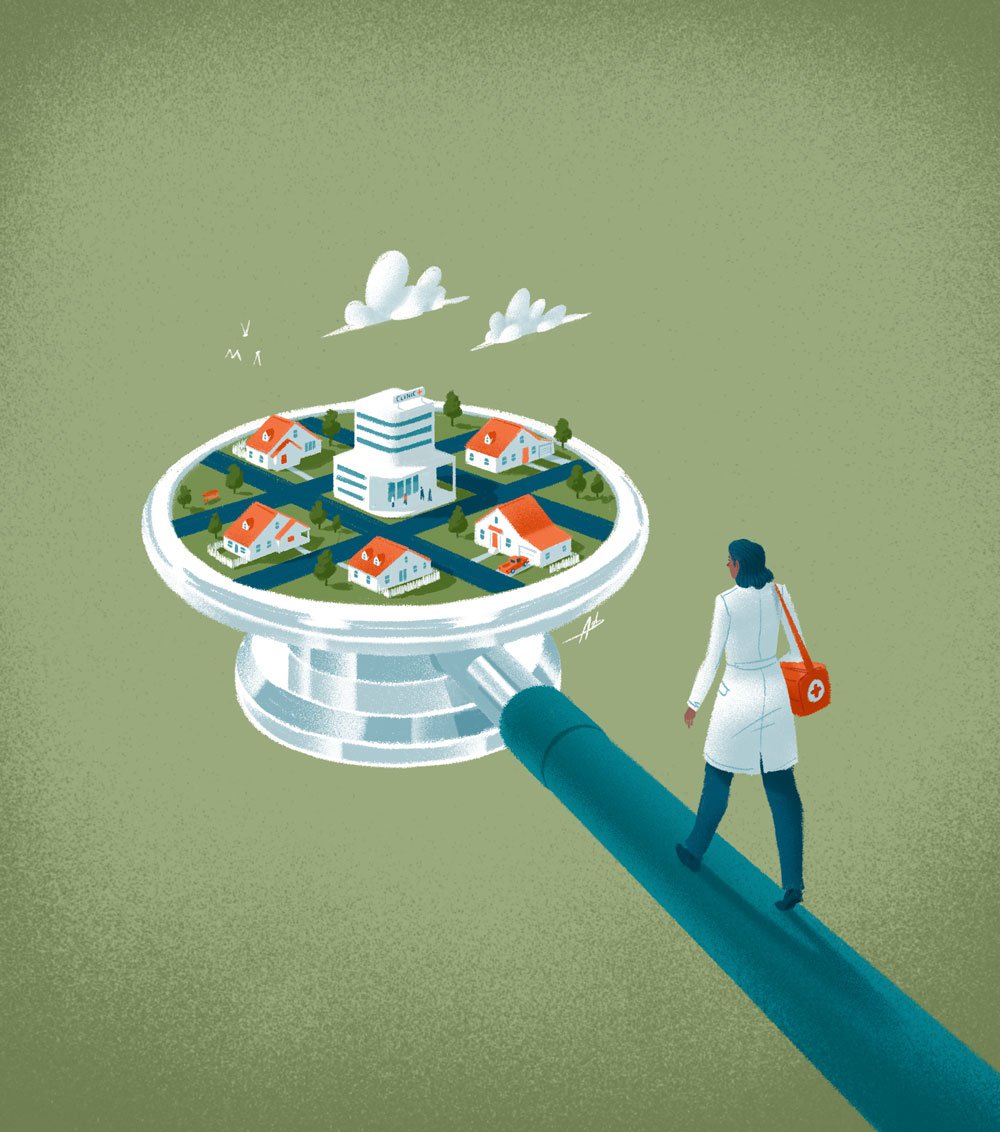result



The Face of Health Equity

PHILANTHROPY HELPS SPECIALISTS MEET PATIENTS WHERE THEY ARE
Transportation. Child care. Paid time off. Cell phone access. The many and complex barriers to health care faced by the nearly 1 million Houston-area residents living below the poverty line can often feel like an unbearable weight.*
“It’s everything we take for granted,” says Dr. Ethan A. Burns, a hematologist-oncologist with the Houston Methodist Neal Cancer Center. “I have one patient who takes three different buses to get to his infusion appointments. There are just so many social determinants of health faced by uninsured and underserved patients in Houston — it’s easy for many to feel forgotten.”
With help from philanthropic partners, Houston Methodist launched the Community Scholars program in 2013 to deliver compassionate specialty care — and, equally essential, dignity — to indigent patients facing serious or chronic illness across Greater Houston. Through work within Federally Qualified Health Centers, expert Houston Methodist physicians and their teams bring free medical care to the communities where patients live. This highly successful initiative also provides invaluable training to medical fellows and residents who gain clinical care experience across a broad range of diagnoses in a highly diverse patient population.
In many cases, care by these trainee scholars is the first a patient may receive — even for advanced-stage disease. As a scholar fellow, Dr. Burns saw this reality in the face of patient Jose Rangel, who had traveled to Mexico to seek low-cost care for debilitating fatigue and bone pain. Erroneously diagnosed with metastatic pancreatic cancer, he was given only a few months to live. When he sought follow-up care through the Community Scholars program at the Legacy Community Health clinic in Houston, Dr. Burns and the medical oncology team were able to conduct a full evaluation. They correctly diagnosed Rangel with a pancreatic neuroendocrine tumor and started treatment to help keep the condition at bay.
“That was three years ago,” says Dr. Burns. “Through the most advanced therapies available, we’ve been able to offer this man and his family borrowed time and a quality of life that he wouldn’t have had otherwise. He counts every day as a blessing — it’s one of the big wins.”
EXPERT HOUSTON METHODIST PHYSICIANS AND THEIR TEAMS BRING FREE MEDICAL CARE TO THE COMMUNITIES WHERE PATIENTS LIVE
Transformational support for the Community Scholars program comes from Occidental, an international energy company headquartered in Houston, whose recent gift will expand pulmonology care for the city’s most vulnerable patients. The commitment by Occidental will initially grant one three-year fellowship rotation to a talented Occidental-Houston Methodist Fellow and provide for one mentoring preceptor, an experienced supervising physician. To date, nearly 450 patients have benefited from care through the program’s pulmonology rotation, including diagnosis and treatment of lung-related diseases such as asthma, tuberculosis and chronic obstructive pulmonary disease (COPD).
But direct patient care is just one driver of wellness for economically disadvantaged people. The farsighted vision of benefactors Dorothy and Mickey Ables is also bringing cancer education and prevention into sharp focus for many families. The couple’s gift to establish the Dorothy and Mickey Ables Community Outreach and Engagement Distinguished New Century Chair in the Neal Cancer Center aims to provide chairholder Arica A. Brandford, PhD, JD, the tools to quickly impact community health.
Dr. Brandford, associate director of community outreach at the center, has built her career around advancing health equity and improving cancer outcomes by empowering communities to become effective advocates, educators and navigators for cancer awareness and care.
Dr. Ethan Burns sees patient Jose Rangel (pictured with his wife, Arminda Lopez) at the Legacy Community Health clinic as part of the Houston Methodist Community Scholars program
“Thanks to the Ables, the core of my work will be to drive measurable improvements in cancer screening rates, early detection and prevention services in underserved communities, with a particular emphasis on neighborhoods facing environmental disparities that contribute to higher cancer rates,” Dr. Brandford says. “This endowment will also catalyze the translation of outcomes research into practice, accelerating the pace at which we can improve cancer outcomes.”
Whether delivering firsthand care in the clinic or hitting the pavement to spread prevention literacy, Drs. Burns and Brandford credit the philanthropic friends who share their heart for the human experience. “All of our work should be grounded in the lived experiences of the communities we serve,” sums up Dr. Brandford. “I’m confident that, together, we will make a profound difference in people’s lives.”
Community Scholars by the Numbers
0
+
Scholar Fellows
and Residents
5
Community Clinic
Partners
11
Specialty Care Areas
8865
Patients†
0
Patient Visits†
* In the three-county region of Harris, Montgomery and Fort Bend (Greater Houston Community Foundation)
† As of end of year 2024


